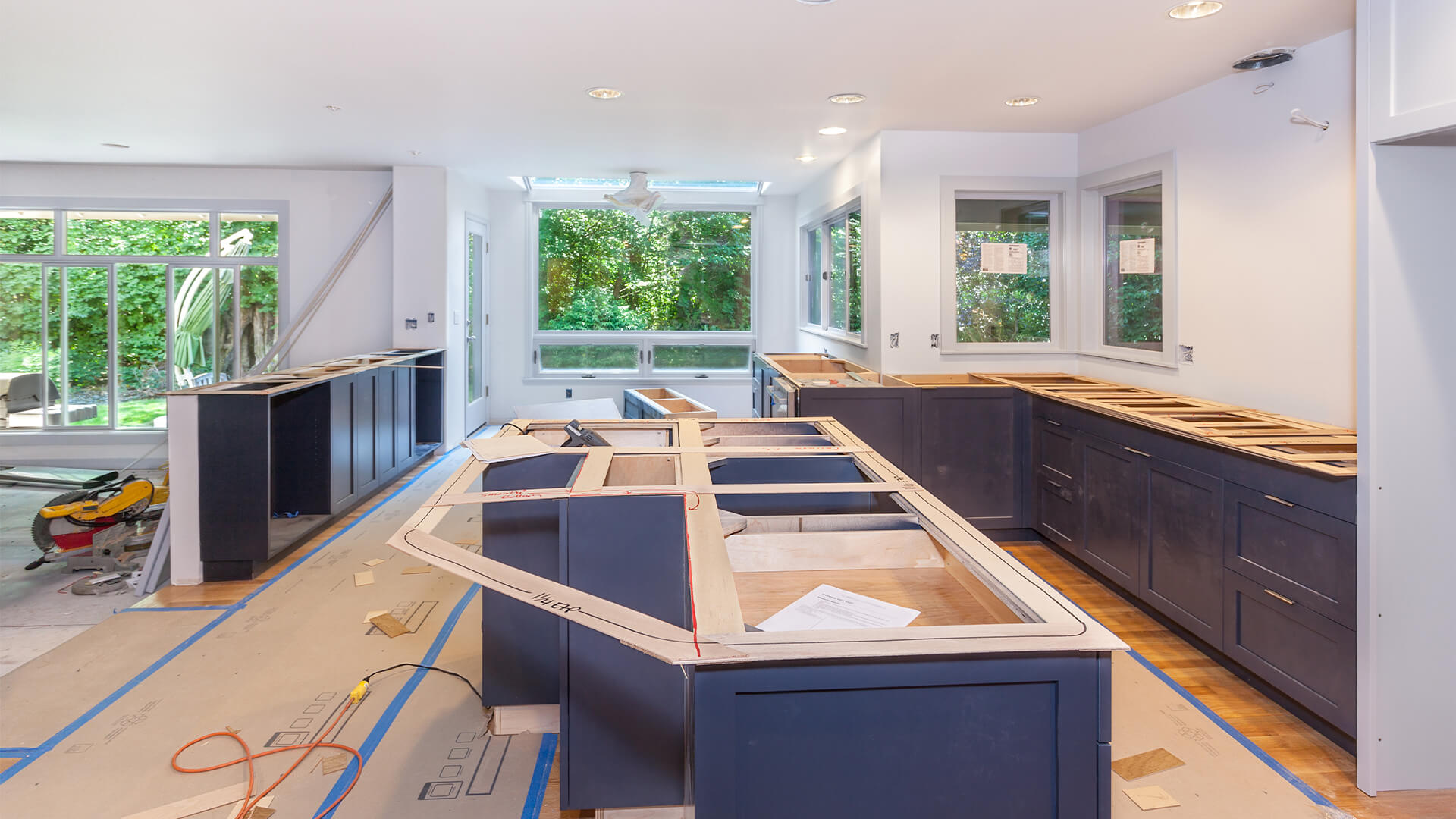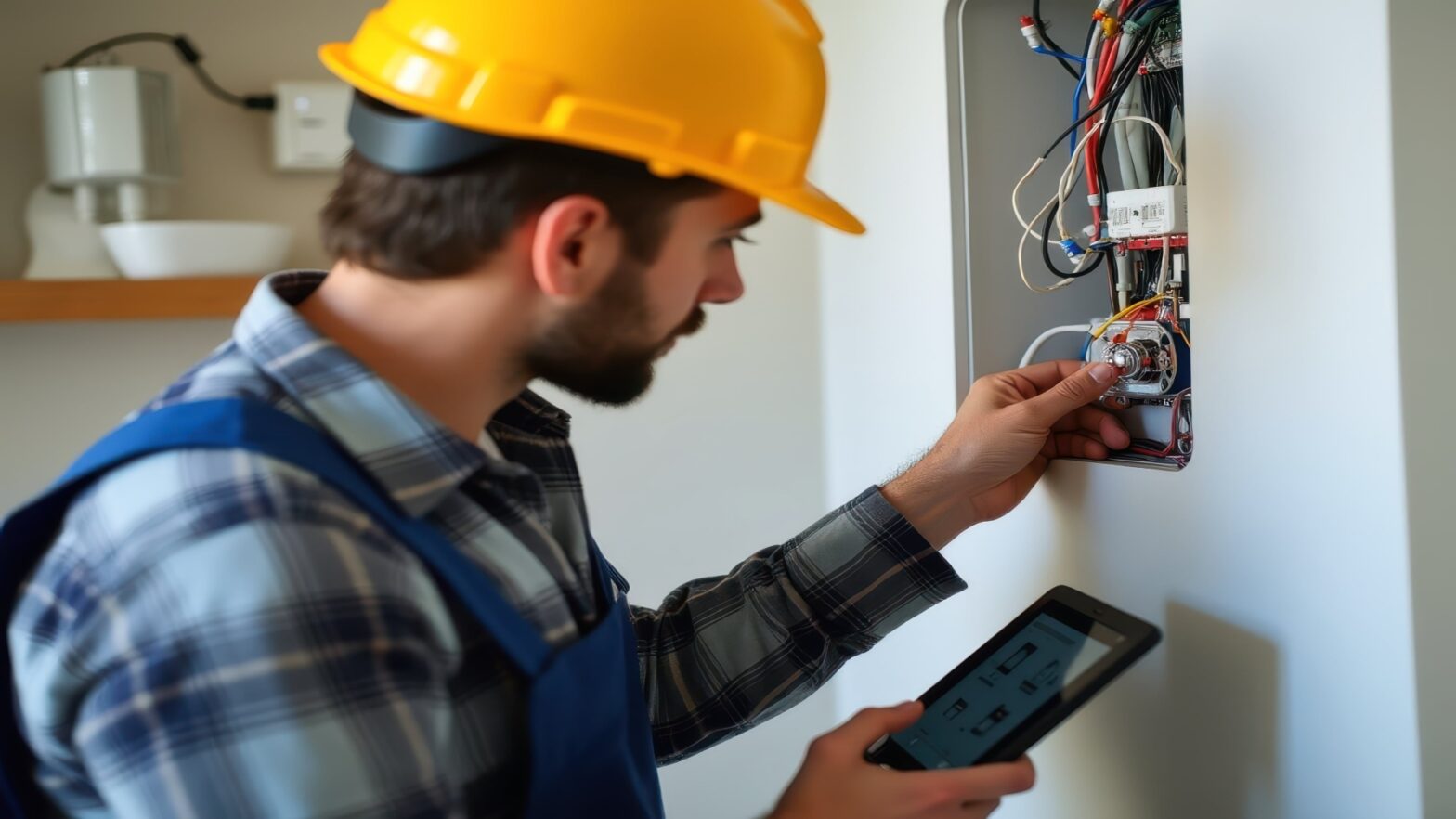Renovating your home can be an exciting project, allowing you to update and customise your property. However, it also comes with risks, especially if the proper safety precautions are not taken. When you have builders, plumbers, electricians and other contractors coming in and out of your home, safety should be a top concern throughout.
Follow this guide to help keep your property, belongings and family safe during home renovations.
Research and hire reputable professionals
The first step is finding trustworthy and skilled professionals to take on the renovation work. Rushing to hire the cheapest contractors you can find often leads to shoddy workmanship and unnecessary risks. Invest time into researching companies and getting quotes from multiple contractors local to you, with proven experience. Look for builders, joiners, gardeners, plumbers, electricians and other workers who:
- Have strong reviews and recommendations from past clients
- Are fully licenced, insured and certified for the work they will be doing
- Provide a detailed quote clearly outlining costs, timeline and expectations
- Make safety a clear priority in their practises
Be wary of quotes that seem too good to be true – cheap labour often means that these contractors can cut corners. Don’t be afraid to ask lots of questions and verify certifications. You can also check reviews online, for example on Google and Checkatrade.
Have a clear renovation plan
Before allowing workers into your home, make sure there is a clear plan in place for the renovation. This should outline:
- Which parts of the property will be worked on
- What tasks will be completed at each stage
- How long the project is expected to take
- What safety protocols will be followed
If multiple contractors are involved, ensure everyone is on the same page. Miscommunication can lead to unsafe situations or unexpected delays. You should also agree on how and when workers will access your home. Giving unrestricted access around the clock is unwise and could jeopardise safety.
Protect belongings and valuables
Take important steps to protect your belongings from damage or theft during the renovation:
- Move expensive furniture and valuables out of renovation zones. Even items covered in dust sheets can get damaged.
- Store small valuables like jewellery and important documents off-site or in a locked safe.
- Install security cameras to monitor workers and identify any unapproved visitors.
- Change locks and limit key access if workers will be in your home unattended.
- Check if your home insurance covers renovations – if it does, make sure to check what renovations your policy covers.
Closely checking references can help avoid hiring untrustworthy workers. However, caution is still wise when allowing relative strangers into your home for extended periods, even if you trust the chosen renovation workers implicitly.
Pay special attention to garage safety
Garages often contain many potential hazards, from sharp tools to toxic chemicals. Take extra precautions if your garage renovation includes:
- Electrical work – ensure no cables are left exposed and power is fully isolated when required
- New shelving – secure firmly to walls and don’t overload
- New garage doors – hire competent professionals and test automatic openers thoroughly
- Floor resurfacing – check for slipping hazards like oil drips or loose tiles
- Removing asbestos – follow proper safety procedures
Also, check for fume buildup if the garage will be sealed overnight while work continues inside. Carbon monoxide detectors should ideally be installed for occupant safety. Once the work has concluded, make sure that tools and chemicals are stowed away to avoid accidents.
Isolate unsafe zones
Temporary walls, doors, screens or barricades can help isolate construction zones from the rest of your home. This keeps dust confined and prevents family members or pets from entering any dangerous areas or those currently undergoing work.
Mark any isolated zones as off-limits with clear signage and high-visibility barriers, and make sure workers keep entrance points to these areas securely closed when unattended. Also, discuss if sections of the home will be uninhabitable or lose utilities during certain phases of the home renovation project. You may need to temporarily move out, or plan for alternatives like backup generators if electricity is impacted.
Conduct thorough safety checks
Carry out diligent safety checks throughout the renovation process:
Electrical
- Check the credentials of any electricians hired
- Ensure exposed wires and cables are clearly marked and secured
- Never let non-qualified persons attempt electrical work
- Watch for tripping hazards from loose cords or cables
- Confirm circuits are safely turned off before work begins and labelling is clear
- Check for slipshod wiring jobs, messy junction boxes or faulty breaker panels
Gas
- Have gas appliances and lines inspected by certified technicians before starting
- Ensure gas is securely turned off at the main line when doing work nearby
- Test for leaks with soapy water after any gas-related work
- Do not ignore the smell of gas – evacuate immediately if detected
Water
- Turn off water supply before plumbing work begins and drain pipes
- Check for and seal leaks as soon as they appear to prevent water damage
- Ensure drainage problems are fully fixed rather than just covered over
- Look for slipping hazards from spills or damp surfaces
Air quality
- Use dust screens and plastic sheeting to contain dust
- Open windows and use fans/air filtration units to improve ventilation
- Check workers are using respiratory protection when needed
- Schedule messy work when you can vacate the home for a while after
Structural
- Have foundations, roofing and load-bearing walls checked by engineers
- Watch for shifted support beams developing cracks or sagging spots
- Ensure scaffolding and ladders are secure
- No makeshift structures – proper platforms and rails should be used
Fire safety
- Prohibit smoking inside the home or around flammable materials
- Keep corridors and exits clear of obstructions
- Have appropriate fire extinguishers on hand and learn how to use them
- Stop all work an hour before leaving to allow for thorough cleanup and checks
Maintain open communication
Talk to your renovation team regularly to discuss progress, issues arising, changes to the plan and safety considerations. Notify workers immediately if you notice any problems like leaking pipes, exposed wires or noxious smells. Raise any safety concerns promptly and directly.
Trustworthy professionals will appreciate this diligence – those who become defensive will likely indicate wider issues. By selecting reputable workers, implementing isolation measures and staying vigilant with safety checks, you can ensure your home renovation proceeds smoothly while keeping your property and family’s well-being protected.

































